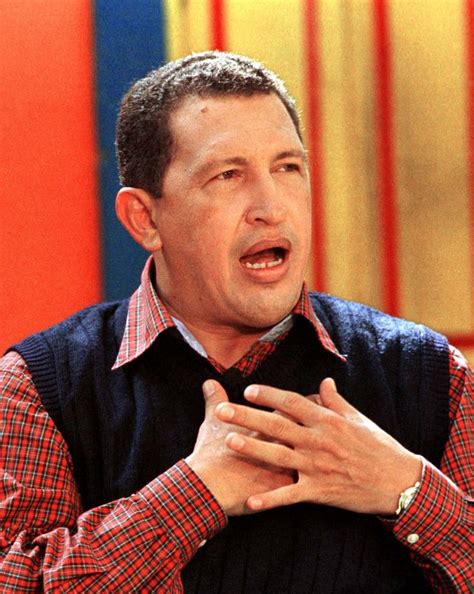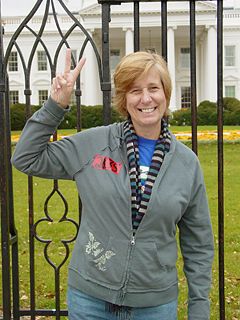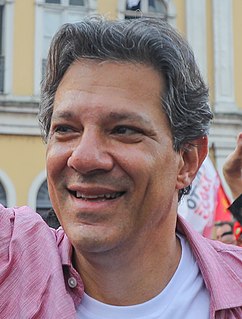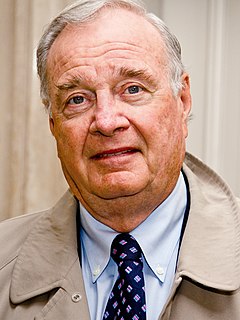A Quote by Rory Carroll
He [Hugo Chavez] put poverty at the heart of political debate. Rightly so, given the country's immense inequality and poverty. He invested heavily in social programs such as literacy, health clinics, and education. He promoted Venezuela's indigenous culture and urged compatriots to take pride in its pre-Columbian history. He called time on the US treating Latin America as its backyard.
Quote Topics
America
Backyard
Chavez
Clinics
Country
Culture
Debate
Education
Given
Health
Heart
History
Hugo
Immense
Indigenous
Indigenous Culture
Inequality
Invested
Latin
Latin America
Literacy
Political
Political Debate
Poverty
Pride
Programs
Promoted
Put
Rightly
Social
Social Programs
Take
Time
Treating
Us
Venezuela
Related Quotes
I have to say that if our global alliances are going to be alliances with Hezbollah and Hamas and Hugo Chavez's Venezuela and Vladimir Putin's Russia, there is absolutely no chance of building a world-wide alliance that can deal with poverty and inequality and climate change and financial instability, and we've got to face up to that fact.
It was shameful that, after Haiti, Colombia was the second most unequal country in Latin America. But we've achieved some things; the inequality is coming down, and coming down fast. The growing economy has provided us with the funds to finance a very progressive social policy that has reduced extreme poverty. We have the lowest inflation rate of all Latin-America countries and the highest growth rate.
Imagine a country where the vast majority of seniors live in poverty, a country where for many there are no golden years, but a time of struggle and dependence. That was the United States before the creation of Social Security, which has proven to be one of the most effective and important government programs in our history.
Political systems must love poverty-they produce so much of it. Poor people make easier targets for a demagogue. No Mao or even Jiang Zemin is likely to arise on the New York Stock Exchange floor. And politicians in democracies benefit from destitution, too. The US has had a broad range of poverty programs for 30 years. Those programs have failed. Millions of people are still poor. And those people vote for politicians who favor keeping the poverty programs in place. There's a conspiracy theory in there somewhere.
Muhammad Ali struck us in the middle of America's darkest night, in the heart of its most threatening gathering storm. His power toppled the mightiest of foes, and his intense light shined on America, and we were able to see clearly injustice, inequality, poverty, pride, self realization, courage, laughter, love, joy and religious freedom for all.
There are some people who say that they?re concerned only with poverty but not inequality. But I don?t think that is a sustainable thought. A lot of poverty is, in fact, inequality because of the connection between income and capability?having adequate resources to take part in the life of the community.
If you take a look at the breaches of rights, whether it's the underfunding of education or health care, and all these issues which accentuate the poverty of Canada's indigenous people, and the lack of reaction to them - it becomes clear that if Canadians understood what's at stake, they wouldn't stand for it.
Anything would be better in the US than what you have. As a government it's really very low quality, given the fact that this country produces eminent intellectuals, has great universities, and then the people who arrive in government are very mediocre. The Latin American situation has been very different in the first place, because writers have spoken for those who have no voice. The rate of illiteracy, poverty, joblessness in Latin America has been so great throughout our history that if the writers didn't speak out for the people, nobody would.
Poverty is a strange and elusive thing. ... I condemn poverty and I advocate it; poverty is simple and complex at once; it is a social phenomenon and a personal matter. Poverty is an elusive thing, and a paradoxical one. We need always to be thinking and writing about it, for if we are not among its victims its reality fades from us. We must talk about poverty because people insulated by their own comfort lose sight of it.
Unemployment in the sense of distress is widely disappearing. . . . We in America today are nearer to the final triumph over poverty than ever before in the history of any land. The poor-house is vanishing from among us. We have not yet reached the goal, but given a change to go forward with the policies of the last eight years, and we shall soon with he help of God be in sight of the day when poverty will be banished from this nation. There is no guarantee against poverty equal to a job for every man. That is the primary purpose of the economic policies we advocate

































